10+ Vegan Diet Dangers (Plus Signs to Watch Out For)
Before you think about going vegan, learn about ten potential dangers and health risks that can result from a plant-based diet. You need to know about the increased risks of nutrient deficiency and disease, including one risk that is irreversible. I’ve also included a list of signs of an unhealthy vegan diet so you know what to watch out for.
Have you ever wondered if a vegan or plant-based diet would help you manage your weight and resolve any nagging health problems? That’s the promise that is often made around this trend.
But, you hear less about the health problems that can occur from a strict plant-based diet that excludes all animal products. This article includes ten reasons that may dispel the myth that veganism is the healthiest diet and works for everyone.
I’ve also included some suggestions for how to counter these potential health risks of a vegan diet.
What Is a Vegan Diet?
What is a vegan diet? Simple put, a vegan diet is one that excludes any food that comes from an animal. This includes eggs, dairy, meat, fish, poultry, and even honey.
Some people take a vegan diet even further and embrace it as a lifestyle, and will not purchase or use any clothing or personal care products that include animal-based ingredients.
Whole foods, plant-based diets
A “whole foods, plant-based diet” is more often the term used for an approach that includes fewer processed foods, and a greater emphasis on fruits, vegetables, legumes, grains, nuts, and seeds.
However, even that term can get confusing as paleo diets are considered to be a plant-based approach, but they do include animal products.
Learn more about the differences between clean eating, paleo, vegan, keto, and Whole30 diets or the differences between vegan and vegetarians.

What vegans eat
If a vegan or plant-based diet does not include any animal products, then what does it include?
Vegans can eat vegetables, fruits, whole grains, soy, legumes (beans), nuts, and seeds.
A vegan diet doesn’t necessarily means it’s healthy, though, since it by definition does not exclude a lot of processed foods, sugar, or gluten.
Just look at the popularity of fake meats which are incredibly processed and not necessarily healthy by any stretch of the imagination. See my related article on the potential dangers of plant-based meats.
The healthiest vegan diet is likely a plant-based diet that also is one of the best diets for climate change.
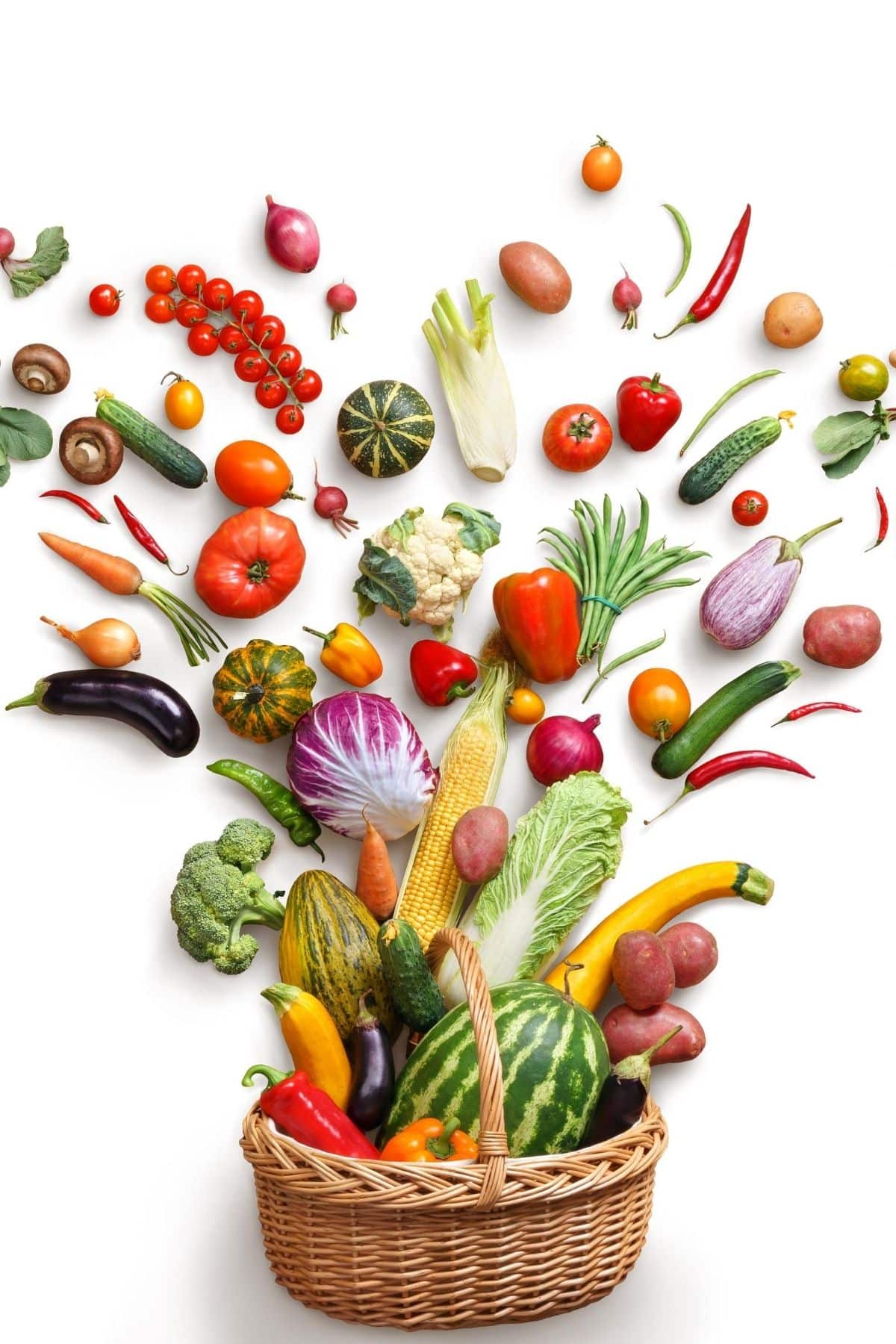
A vegan diet is an extreme diet
Although some people may thrive on a vegan or plant-based diet, it should be noted that it is considered an extreme diet because of how many foods it excludes, as well as the potential for nutritional deficiencies.
This article includes ten real problems with a plant-based diet, including my experience as a woman whose health declined as a result of being on a strict vegan diet.
If you are 100% committed to eating a vegan diet but you are always feeling tired, you might also want to read my article with tips for how to reverse fatigue on a vegan diet.
This article includes links to scientific studies whenever possible.
However, some of these potential diet dangers are anecdotal and not based on human studies. So, as always, it’s important that you consult your healthcare provider to help determine what type of diet is best for you.
Ten Potential Vegan Diet Dangers
Please note, my intent with this article is not to discredit any of the benefits that can result from eating more plant foods, but to provide cautionary evidence of what can happen if a vegan diet is taken too far and warning signs are ignored.
1. Risk of anemia due to a lack of heme iron
Iron-deficient anemia is the most common nutritional deficiency in the world, and both vegans and vegetarians are at higher risk of this condition.
While plant foods contain a form of iron, it is called non-heme iron and it is much less absorbable by the body.
Iron-deficient anemia can lead to serious symptoms including fatigue, and women of child-bearing age should be aware of how a vegan or vegetarian diet can quickly lead to anemia.
See my related post on how to eat to support your menstrual cycle.
While iron supplements can be taken to help reverse or prevent anemia, most women dislike taking iron supplements because potential negative side effects including constipation. It can also be difficult to take enough iron supplements to overcome anemia, especially without eating animal sources of iron.
See my list of the best vitamins for women over 30 or the best vitamins for a teenage girl which include iron to help boost ferritin levels.
You may also want to consider adding cricket protein to your diet. While eating insects is not normally accepted in a vegan diet, it may be a lower-impact way of adding animal protein back into your diet without eating animals like cows, fish, or chicken.
Having your ferritin levels checked regularly if you are a woman of child-bearing age is essential to ensure you don’t become anemic on a plant-based diet. See my article on how to order lab tests without a doctor.
You may also want to consider cooking with a cast iron pan (see my list of the safest cookware material).
Eating therapeutic meat
If you cannot raise your iron levels on a plant-based diet and you are at your wits end, you may consider something called eating “therapeutic meat.” The idea is that you eat just enough meat to raise your iron levels and then go back to a non-meat lifestyle.
This is a practice that is becoming more popular and may be something to consider. It is similar to getting a religious exception to eat certain foods not usually allowed in that religion unless you are sick or elderly.

2. Increased risk of depression with low omega-3 fatty acid intake
Without a food source of omega-3 fatty acids from fish or fish oils and an increased consumption of omega-6 fatty acid from foods like nuts, vegans might be at higher risk from depression.
Algae-based sources of omega-3 fatty acids are an option, but they can be expensive and hard to find. And, since many vegan diets may include a higher than average intake of nuts, the balance of fatty acids in the body can still get off-balance.
There are issues associated with low omega-3 levels and some are quite serious. Pregnant women also need to be extremely aware of their omega-3 intake as the fatty acids help nourish the fetal brain development.
Omega-3 fatty acids can be tested through a blood test, and should be monitored if you start experiencing symptoms of depression or anxiety. Please do contact a healthcare professional as soon as you think you might be depressed, as you don’t want the symptoms to get worse.
Once you have your levels tested, you can use algae-based omega-3 supplements to help increase your levels. In the worst case scenarios, you can consider taking a fish oil supplement to get your levels stabilized.
You may also want to consider the best magnesium supplements to help with anxiety.

3. Risk of Vitamin B12 deficiency
Since vitamin B12 is only available in animal foods, vegans are at a much higher risk of developing a deficiency in this vital nutrient.
In fact, most nutrition professionals agree that those on a vegan or vegetarian diet must supplement with a high-quality vitamin B12 supplement to avoid irreversible health conditions that can result from deficiency.
It should also be noted that many people have a genetic variation known as MTHFR that can impact how B vitamins are absorbed. In this case, even certain B vitamin supplementation might not be enough to prevent a deficiency.
Read more about the best MTHFR diet and supplements.
If you are at all concerned that you aren’t getting enough vitamin B12 in your diet, then ask your doctor for a vitamin B12 test.
If it turns out you are low in vitamin B12, then you may need to get an injection or use sublingual supplements, plus have your levels monitored regularly.
You may also need to monitor your intake of vitamin B2 (riboflavin) and vitamin B3 (niacin), as these can also be lower on a vegan diet.

4. Inhibition of zinc absorption on vegan and vegetarian diets
Similarly to deficiencies that can occur with vitamin B12, vegan and vegetarian diets can result in low zinc status.
It is theorized that the problem in this case is that higher consumption of plant foods containing phytic acid may inhibit the ability of the body to absorb zinc.
Because of this potential issue with zinc absorption, it is often recommended by nutrition professionals that vegans and vegetarians should increase their intake of zinc up to 50% of the recommended daily allowance to ensure adequate levels.
Good zinc levels are really important for boosting the immune system so it’s important to make sure you’re eating enough food sources of zinc or that you take a zinc supplement.
Plant-based sources of zinc are not as bioavailable as animal sources, so make sure you are getting enough from food sources or from supplements. Be careful with zinc, though, as you don’t want to take too much.

5. Low intake of iodine
Without quality sources of seafood, there is a real risk of not getting enough iodine in both vegan and vegetarian diets.
Iodine deficiency is problematic and can lead to hypothyroidism and other complications.
Vegans and vegetarians can supplement with iodine by using iodized salt or eating seaweed products. But, deficiencies still persist.
6. Not consuming enough calcium
Another nutrient deficiency that can occur with dairy-free, vegan, and plant-based diets is calcium deficiency.
While you can get calcium from plant-based foods, there is generally less calcium than in dairy products. And, plant foods often contain phytates and oxalates than inhibit the absorption of calcium.
A long-term risk of inadequate calcium intake is an increased risk of bone fractures.
If you cannot or do not want to consume dairy products, be sure you are taking a calcium supplement or consuming fortified plant-based milks.
7. Risk of consuming too much carbohydrate
Vegan diets are generally lower in protein and can cause blood sugar swings in certain individuals. There is also the risk of over-consuming carbohydrates on a vegan diet, especially since legumes are often consumed as a protein source, but are very high in carbohydrates.
Vegans may also replace the calories from protein sources with refined carbohydrates including bread, crackers, and cookies.
Over-consuming carbohydrates can lead to non-alchoholic fatty liver disease, blood sugar disregulation, and other troublesome symptoms. See my articles on how to follow a sugar-free diet and how to do a sugar detox.
You may also need to consider eating more complex carbohydrates like sweet potatoes as opposed to eating simple carbohydrates like crackers or bread.
You may also want to check out this article on the best gluten-free carbohydrates if you are unsure about which ones you should be eating.
8. Not eating enough high-quality protein
Eating a diet that includes moderate to higher levels of protein has been shown to have a positive effect on satiety and weight management. It can be harder to find quality sources of protein on a vegan diet that aren’t also carbohydrate sources (like beans) or are soy-based.
Without a quality source of lean protein in the diet, vegans may experience fatigue or low exercise tolerance. If that is the case, you may need to consider adding protein powder to your diet.
See my list of the best clean protein powders.
One risk of not eating enough protein is sarcopenia, or muscle wasting. This may be particularly true for older adults who are on vegan diets.
9. Risk of disordered eating
Orthorexia is a type of eating disorder that is defined by an over-fixation on healthy eating patterns. It can result in over-restriction, obsession, and other serious eating disorders.
At least one study found that vegans and vegetarians tended to display more orthorexic eating patterns, and most eating disorder specialists do not recommend restrictive diets such as veganism or vegetarianism for people trying to recover from an eating disorder such as orthorexia.
Read more about orthorexia and food obsession.
If you find that your eating disorder is getting worse on a vegan or plant-based diet, then you should consider working with a qualified therapist to help work on increasing your body weight.
In the worst case scenario, your therapist may advise you to consider moving away from a vegan diet while you repair your relationship with food.
You may also need to consider eating more calorie-dense foods if you are recovering from an eating disorder. See my 1,000 Calorie Weight Gain Smoothie or my list of the best Weight Gain Smoothies for recipe inspiration.

10. Processed soy issues
Again, as a result of excluding all forms of animal protein, many vegans turn to soy as a protein source.
While unprocessed forms of soy may be okay for some people, processed forms of soy are commonly found in a vegan diet, including tofu, soy milk, and soy-based processed foods sold as meat substitutes.
Processed soy foods are no better for human health than any other highly-processed foods, but with the added risk of hormone interference due to phytoestrogens found in all forms of soy.
Soy has also been found to be a contributor to the intake of the toxic metal cadmium in vegans and vegetarians.
Read more about the potential dangers of eating soy.
To help counteract or avoid any negative results from eating too much soy, you may consider eating fermented soy sources such as tempeh, or limiting your soy consumption to several times a week. You may also wish to avoid non-organic forms of soy which can be a source of GMOs in the diet.
If you do choose to consume soy, try making healthy recipe as opposed to buying processed versions. I recommend my Air Fryer Tofu as a great option.

Additional health risks associated with veganism
While some of the health risks of a vegan diet are outlined above, this list is not complete.
There are other risks of a plant-based diet including becoming isolated from friends and family due to an extremely restricted diet, the risk of eating too many high histamine foods and developing histamine intolerance, the risk of triggering a gluten intolerance when consuming too many gluten-containing foods, and other risks including inadequate intake of vitamin D.
The bottom line is that a vegan diet is not natural for humans and most cannot stick with it (up to 84% of vegans and vegetarians end up eating meat again).
While it can be used on a short-term basis for weight loss or for other health reasons, it may result in significant nutritional deficiencies over the long term as well as other risks including eating disorders and isolation.
This is especially true if a vegan is not taking supplements and is not being closely monitored by a healthcare professional with regular blood work.
Signs of an Unhealthy Vegan Diet
An unhealthy vegan diet, like any poorly planned diet, can lead to various nutritional deficiencies and health issues such as the ones mentioned above.
Still, you may not know if your vegan diet is letting you down until you start experiencing symptoms or signs of deficiency. Here are some signs that a vegan might not be getting a balanced diet:
- Fatigue and Weakness: This can be a sign of iron deficiency anemia, common in those not consuming enough iron-rich plant foods or vitamin C, which enhances iron absorption.
- Poor Skin Health: Dry, pale, or bruised skin might indicate deficiencies in vitamins and minerals like vitamin A, vitamin C, and zinc.
- Hair Loss and Brittle Nails: This can result from inadequate protein intake or deficiencies in vitamins and minerals like iron, zinc, and vitamin B12.
- Dental Issues: Problems like bleeding gums can be a sign of vitamin C deficiency, while weak enamel might indicate a lack of vitamin D.
- Digestive Problems: Persistent digestive issues may be due to a lack of dietary fiber, often found in fruits, vegetables, and whole grains, or from overconsumption of processed vegan foods low in fiber.
- Mood Changes and Cognitive Problems: Deficiencies in omega-3 fatty acids, vitamin B12, and iron can affect mental health, leading to issues like depression, anxiety, or difficulty concentrating.
- Frequent Illnesses or Slow Healing: This might indicate a weak immune system, possibly due to deficiencies in essential nutrients like zinc, vitamin C, and vitamin D.
- Unintended Weight Changes: Sudden weight loss might result from not consuming enough calories, while weight gain might occur from over-reliance on processed vegan foods high in sugar and fat.
- Bone or Joint Pain: This could indicate a deficiency in vitamin D or calcium, both crucial for bone health.
- Irregular Menstrual Cycles in Women: This can be caused by low body weight, high physical stress, or insufficient intake of essential fats and other nutrients.
It’s important to note that these symptoms can be caused by a variety of factors and may not necessarily be due to diet alone. A well-planned vegan diet can be healthy and nutritious, but it requires careful planning to ensure all nutritional needs are met.
I highly recommend consulting with a functional medicine practitioner who can help do the necessary lab testing and analysis to figure out the individualized diet appropriate for your needs.
My Experience
Most of you know me as creator of the Clean Eating Kitchen website.
I have a master’s degree in public health with a specialty in nutrition, but I’m also a woman on a healing journey, looking to find more natural and holistic ways to feel better and recover from health issues resulting from decades of eating a Standard America Diet (you can read more about me).
My introduction to veganism
Back in 2010, I had a friend who had gone on a vegan diet because she no longer wanted to eat animals (usually referred to as an ethical vegan). This was my first exposure to a vegan diet.
I then saw Oprah interview Alicia Silverstone about her book The Kind Diet and was even more curious about the purported health benefits of going vegan.
I got a copy of the book and was smitten with the idea that cutting out animal foods could potentially fix all the health problems that I was having, especially the inability to manage my weight that I learned years later was a result of undiagnosed thyroid disease.
My experience being vegan and then moving away from veganism
The first year on a vegan diet was okay. I had a hard time giving up some of my favorite foods, especially dairy yogurt and eggs. I didn’t lose any weight going vegan, but I had reduced acne outbreaks once I stopped eating dairy (I am still dairy-free).
About one year into my vegan diet experiment, I started experiencing an outbreak of hives after eating. The hives were intense. One morning my eyelid was swollen shut. I thought perhaps gluten might be the issue, so I also then cut out gluten (I am also still gluten-free).
Around that time, I also came across a more extreme version of veganism, one that cuts out all oils, processed foods, refined carbs, and sugar. I thought maybe, just maybe, that I had found the answer to losing weight and feeling good.
One thing led to another and I was eventually diagnosed with severe Hashimoto’s disease and then thyroid cancer in 2012. My world came crashing down. At the time, I had been following this extreme form of veganism for almost two years and thought I was supposed to be protected from such a terrible diagnosis.
I continued on the vegan path even after my diagnosis and treatment, thinking if I just tried harder or got more restrictive, then I would be healthy. My diet got more and more restricted and I felt an eating disorder mindset start to consume me. I was always hungry, yet I wouldn’t allow myself to eat the foods that would nourish and heal me.
Finally, after careful thought and lots of fretting, I decided to stop being vegan. I wrote a blog post about not being vegan anymore and lost a lot of friends over my decision (that blog post has over 500 comments on it).
Once I was immersed into the vegan culture, it made it that much more difficult to mentally make that mental shift of eating meat again. I experienced bullying and shaming when I wrote publicly about my decision.
Ultimately, I consulted with a dietitian, an eating disorder specialist, and functional medicine practitioners to recover my health and a balanced relationship with food.
At this point, I now have a much more balanced relationship with food, and I follow a clean eating diet full of real, whole foods. I eat a mostly gluten-free, dairy-free diet to manage my autoimmune conditions. I consume animal products, although I am very careful to try and choose wild, pasture-raised, organic, and local options whenever possible.
Overall, my energy levels are much more consistent and I don’t have the blood sugar swings that I had while I was eating a plant-based diet. My lab work shows that I have much higher levels of iron than I had while I was vegan, and overall I feel so much better.
FAQs About Vegan Health Risks
There are risks of nutritional deficiencies, as well as a risk of exacerbating or initiation of disordered eating patterns. Please contact your healthcare provider to determine which is the best diet plan for you, and how you may adapt a plant-based diet to best meet your individual needs.
There are certainly healthy aspects of a vegan or plant-based diet, as long as you are aware of the potential risks. And, as with any diet plan, if you determine it is not meeting your needs, you have the right to change your mind.
It all depends on the individual. But, there are enough significant risks on a vegan diet that you may want to consult with your healthcare provider to determine which diet is best for you.
It is also worth noting that you are allowed to try a vegan diet and you are also allowed to not eat a vegan diet. Your health and well-being is more important than sticking to a set of rules created by someone else.
Problems with a plant-based diet are similar or the same as the problems with a vegan diet. The bottom line is that both vegan and plant-based diets are very restrictive and may create problems over time, including nutrient deficiencies and restricted eating patterns.
Conclusions
Certainly, not everyone has a negative experience on a vegan diet.
There are plenty of people who would benefit great from adopting certain aspects of veganism, including incorporating more vegetables into the diet, and understanding the importance of not purchasing or consuming factory-raised meat.
See my clean eating food list for inspiration and a guide. You might also like this article on the best multivitamin for a women in 30s.
I eat a lot of vegan foods and still create a lot of vegan recipes, especially since I’m gluten-free and dairy-free to manage my autoimmune-related inflammation. I try to eat a variety of plant foods, while including animal protein with most of my meals.
The bottom line is that it’s important to be aware of the risks of extreme diets and any quick-fix approach to health. Based on my experience and exposure to the scientific literature on nutrition, a balanced diet including varying ratios of all of the macronutrients, will most often provide long-term benefits and a reduction of risk of nutritional deficiencies.
Please feel free to leave thoughtful comments that add to the conversation. If you’re looking to bash me for my dietary choices, then don’t waste your time. See my comment policy if you don’t see your comment published.
If you are upset about the plight of factory farm animals, then know that I am concerned about that as well. If you have ideas about how to educate the general public about choosing better sources of food, then I would be very curious to know how we can do that together.
Read Next: Tips on How to Reintroduce Meat After Being Vegan or Vegetarian
More Articles About Veganism & Diet You Might Like
References
- James H. O’Keefe, Evan L. O’Keefe, Carl J. Lavie, Loren Cordain, Debunking the vegan myth: The case for a plant-forward omnivorous whole-foods diet, Progress in Cardiovascular Diseases, Volume 74, 2022, Pages 2-8. https://www.sciencedirect.com/science/article/abs/pii/S0033062022000834
- Freed DLJ. Do dietary lectins cause disease? : The evidence is suggestive—and raises interesting possibilities for treatment. BMJ : British Medical Journal. 1999;318(7190):1023-1024 https://www.ncbi.nlm.nih.gov/pmc/articles/PMC1115436/
- Rizzo G, Baroni L. Soy, Soy Foods and Their Role in Vegetarian Diets. Nutrients. 2018;10(1):43. doi:10.3390/nu10010043. https://www.ncbi.nlm.nih.gov/pmc/articles/PMC5793271/
- Hibbeln JR, Northstone K, Evans J, Golding J. Vegetarian diets and depressive symptoms among men. J Affect Disord. 2018 Jan 1;225:13-17. doi: 10.1016/j.jad.2017.07.051. Epub 2017 Jul 28. PubMed PMID: 28777971. https://www.sciencedirect.com/science/article/pii/S0165032716323916
- Pawlak R, Parrott SJ, Raj S, Cullum-Dugan D, Lucus D. How prevalent is vitamin B(12) deficiency among vegetarians? Nutr Rev. 2013 Feb;71(2):110-7. doi: 10.1111/nure.12001. Epub 2013 Jan 2. Review. PubMed PMID: 23356638. https://www.ncbi.nlm.nih.gov/pubmed/23356638/
- Foster M, Chu A, Petocz P, Samman S. Effect of vegetarian diets on zinc status: a systematic review and meta-analysis of studies in humans. J Sci Food Agric. 2013 Aug 15;93(10):2362-71. doi: 10.1002/jsfa.6179. Epub 2013 May 29. Review. PubMed PMID: 23595983. https://www.ncbi.nlm.nih.gov/pubmed/23595983
- Westerterp-Plantenga MS, Lemmens SG, Westerterp KR. Dietary protein – its role in satiety, energetics, weight loss and health. Br J Nutr. 2012 Aug;108 Suppl 2:S105-12. doi: 10.1017/S0007114512002589. Review. PubMed PMID: 23107521. https://www.ncbi.nlm.nih.gov/pubmed/23107521
- Barthels F, Meyer F, Pietrowsky R. Orthorexic and restrained eating behaviour in vegans, vegetarians, and individuals on a diet. Eat Weight Disord. 2018 Apr;23(2):159-166. doi: 10.1007/s40519-018-0479-0. Epub 2018 Feb 3. PubMed PMID: 29397564. https://www.ncbi.nlm.nih.gov/pubmed/29397564.
- Dagnelie PC. [Nutrition and health–potential health benefits and risks of vegetarianism and limited consumption of meat in the Netherlands]. Ned Tijdschr Geneeskd. 2003 Jul 5;147(27):1308-13. Review. Dutch. PubMed PMID: 12868158. https://www.ncbi.nlm.nih.gov/pubmed/12868158
- Key TJ, Appleby PN, Rosell MS. Health effects of vegetarian and vegan diets. Proc Nutr Soc. 2006 Feb;65(1):35-41. Review. PubMed PMID: 16441942.
- Simpson JL, Bailey LB, Pietrzik K, Shane B, Holzgreve W. Micronutrients and women of reproductive potential: required dietary intake and consequences of dietary deficiency or excess. Part I–Folate, Vitamin B12, Vitamin B6. J Matern Fetal Neonatal Med. 2010 Dec;23(12):1323-43. doi: 10.3109/14767051003678234. Epub 2010 Apr 7. Review. PubMed PMID: 20373888. https://www.tandfonline.com/doi/abs/10.3109/14767051003678234?journalCode=ijmf20
Don’t forget to join my newsletter list to get exclusive clean eating recipes and tips. The newsletter is 100% free with no spam; unsubscribe anytime.
About the Author: Carrie Forrest has a master’s degree in public health with a specialty in nutrition and is studying to be a holistic nutritionist. She is a top wellness and food blogger with over 5 million annual visitors to her site. Carrie has an incredible story of recovery from chronic illness and is passionate about helping other women transform their health. Send her a message through her contact form.
Note: this post is for informational purposes only and is not intended as medical advice. Please consult your healthcare provider for recommendations related to your individual situation.



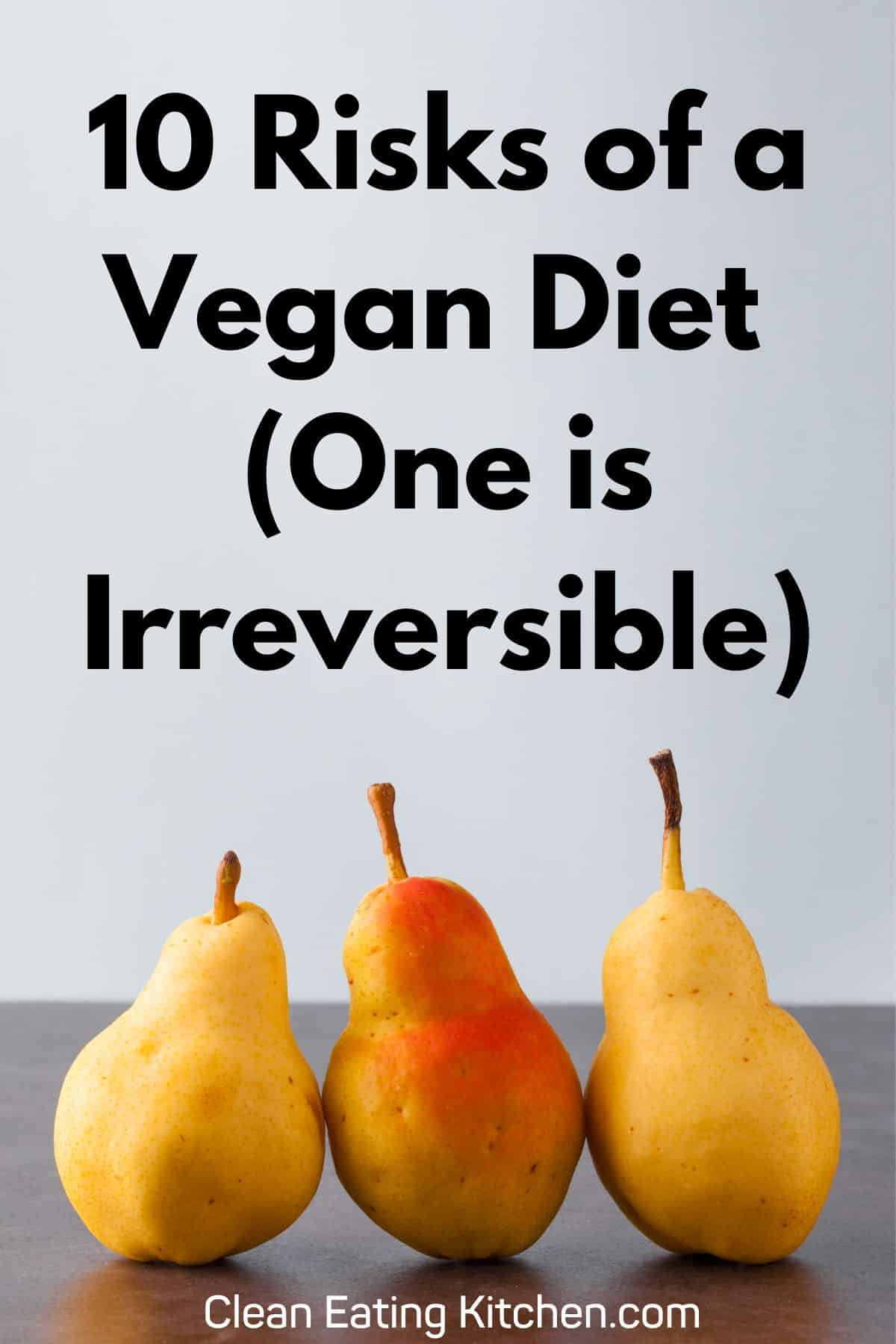
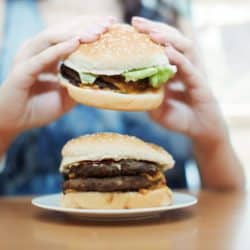
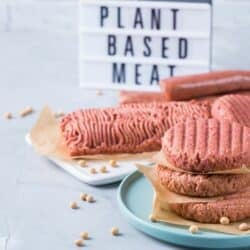







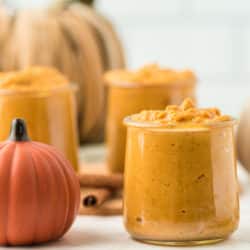





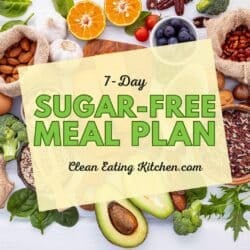



Well done you for going back to eating meat and especially organically produced meat. I don’t understand why people think they are being kind to animals by being vegan/vegetarian because if we don’t eat them they won’t have a life at all – they will become more or less extinct or rare (like Shire horses) – they won’t be kept as pets! I always buy free range, organic meat from Gazegill so I know that the animals are loved and have had a good life. Much better than no life.
I never became fully vegan as I felt I needed my oils & thought these would be better provided via fish consumption. As a lover of meat but always feeling guilty of how the animals are treated approximately 7 years ago I had strange experiences feeling ill when eating meat…so I would reduce the visuals down to only cooking mince but then I would see the animal in my head so couldn’t continue to eat meat any longer. So I gradually changed over to a pescetarian diet & slowly eliminating all dairy. So grateful I love my veg & regularly buy organic via my green grocers. Approximately, 2.5 years ago I became very ill & got meningitis so when my memory worsened I put it down to that. Then about 6 months ago I started to experience internal tremors, fnd symptoms, now my eyesight is suffering which has led me to look into the possibility of deficiencies due to lack of meat & learning of others experiences. Now I know that this could be neurological due to my past ill health but symptoms are constantly increasing & every time I look into a symptom it can also be due to lack of meat. So I have decided instead of waiting for my neuro appt in Jan 2022 I will be eliminating by process & like others found it so hard the thought of eating meat again. But today is my first day I have bought some chicken to reverse any potential damage I may have done or at the very least see if it helps now that I am experiencing major vision issues, chronic fatigue, insomnia & dizzy spells in addition to many other symptoms.
I thoroughly enjoyed reading this post. I have been vegan for 3 years, egg free due to intolerance for 15years. It was a progressive change and the switch from free-from to vegan came quickly after a food poisoning episode one Christmas.
I like knowing my diet is ethical and also cleaner for my body but scientifically i know I have to find balance to maintain this long term. Your post was very helpful in clarifying the risks and benefits to what is a big life decision. Thank you for your honesty and knowledge I am going to read more of your posts after this 🙂
Vegan and vegetarian diets are only sustainable for short periods of time. Most of what you have wrote is true albeit a bit basic it doesn’t cover the glaring fact that you can not replace meat based protein with plant based, its just not the same structure. We are not herbivores we do not have the same intestinal structure as herbivorous we are eomniviours this does not just mean we can choose to eat meat or veg but we need both in our diets in a balanced way to live optimally. We can live off for a short while just meat and likewise just vegetation. But not only is this severally detrimental to your gut but hour entire body right down to electrolyte balance, protein uptake, bone density immune system health cellular repair, brain function and cognitive process… I know alot of people who went vegetarian and then inevitably went vegan and I watched their health decline, now alot of people before going down this path usually have a very bad diet “processed” foods (I do hate that word because every food is processed as soon as it goes on a conveyor its processed…) junk food high sugar based foods, when they choose to switch they are not only making that decision to cut meat out etc. But also inevitably to eat “healther” so they cut out alot of the junk food, which is the main problem with most of western diet and alot of health problems, not animal products! Anyway back to decline in health I ha e watched a number of people including my late mothers health deteriate by joining this fad that is as or if not more dangerous than eating junk food. I have watched as they have suddenly been diagnosed with IBS, low bone density, twisted gut leading to emergency surgery, low b12 inevitably leading to b12 shots being needed, increased illness and poor immune system to fight it off.
Thing is a bit like everything alot of information out there is being read by people who just don’t understand what they are reading… I hold a 1st hons degree in applied biochemistry. It was my first degree that I did. I have always had interest in biology in all aspects. I understand the processes and the implications. Also its not hard even with very little knowledge to unwinds why a vegan diet is detrimental to your health, not being herbivorous we do not have the enzymes that can break down the callous structure of plants,hence why we use it as roughage more than anything we absorb very little from the plants, fruits etc that we eat blue berries for instance, their health benefits have been exponentially blown out of proportion as what they contain in regards to vitamins, and chemical structures to what we can absorb is world’s apart we absorb very little. Much like the fallacy of eating nuts is a good source of protein but is high I fats, yes on paper they do hold both of these but eating them will not allow your body to benefit (or suffer in the case of fats) from these as we can not break th down sufficiently and they basically become roughage…
Forgive my typing ettors very hard on a mobile
There nine essential amino acids that make up protein, all of which can be found in plants. Some legumes and grains are also “complete” proteins like soy. There are healthy people who have been vegan for decades.
Excellent article. A vegan diet requires serious work (and money) to stay healthy, and even then many people will develop health issues, as you state. Here in Argentina, home to world famous grass raised cattle, of all places, a few years ago the leading children’s hospital detected a surge in newborns with neurological defects. Further research found a direct correlation between these cases and mothers following plant based diets resulting in acute vitamin 12 deficit. Imagine the tragedy of irreversible brain damage in babies just for blindly adopting veganism!
Thanks for sharing that, Diego. That is absolutely a tragedy!
Source?
B12 supplements are pretty affordable and cattle is given B12 because there is no longer cobalt in the soil which is necessary for ruminants to make B12 in their digestive system.
I am so grateful I found veganism. It is a wonderful lifestyle that reduces risk for heart disease, several cancers, and diabetes. Not only am I the lowest weight in my adult life, I am eating the most I ever had. My life and plate are fuller than ever! Plant power is real!
I’m glad it works for you, but you are the exception. Humans are designed to eat animal foods, so just remember that.
would you mind elaborating on how humans are designed to eat animal products?
in short: our teeth, our digestive systems, our need for vitamin B12, our need for heme iron, etc.
Yes we are what is called omniviours, look ul the difference you should of learnt this back in prayer school. We need both meat and vegetables etc to survive and live healthy. We do not have the digestive system nor the enzymes to deal with and extract even a fraction of what’s in a plant based diet, also the protein within these plant are complty different to those in meat, out body has evolved over millions of years to be like this its on of the main reasosn we have higher brain functions look at cows for instance and their digestive system in order to extract the nessecery nutrition out of the grass, etc. They have a number of stomachs, much much longer intestines and also a much larger variety of enzymes designed to break down cellulose. A rabbit re digests its pellets to extract the additions nutrition…. in order for us to function we NEED booth meat and veg and fruit pluses grains etc. They need to be balanced. Vegan is and vegetarianism are as bead if not worse than eating purely junk food with many health factors not only effecting them but also of they choose to have children it will effect them and the physical d neurological health, much like taking drugs decade’s before deciding to have children will inevitably effect them… food for thought.
Also you will probably not notice or ignore the health problems you will be inevitably suffering from with your vegan diet. Low B12, low protein intake, low bone density, cognitive nd neurological problems, lymphatic problems including diminished white blood cell mobility and production. Eventual digestive problems… the list goes on and on and belive me j ha e had this conversation many teens before with friends, family and friends other half’s about the health implications and they have stated the same as you only for a few yrs down the line to be suffering from alot of the above. In asoke cases it becoea more apparent quicker, low energy levels, bloatedness, hypersensitivity reactions. Immune problems. My fitness wife was healthy and she switched to a vegan diet all was famazing at the start I tried warning her, she now suffers from chronic ibs, constant I health has had numerous bowel operations, leading to a temporary colostomy bag. She still won’t see the folly of her ways! As I said we are omniviours we are biologically “designed” to eat meat , veg, fruit, pulses, grains etc. Our body’s way of breaking them down is set up I that way otherwise we would have a digestive system closer to that of cows horses etc.
I suggest you read the book How Not to Die. According to so many studies, eating a plant based, whole foods diet provides the best nutrition without all the problems from meat and dairy. I think you must be getting subsidized by the meat industry to be giving people such harmful advice.
I’m sorry but you are wrong on all fronts! You have been grossly misinformed.
very interesting- I’ve been strictly vegan more than half of my life, and vegetarian since a young child…this is because I’ve always been an animal lover and very sensitive, especially with food…This was put down to several traumatic experiences, and possible ADD- i havent given diet as much thought until recently…my tiredness and depression is getting worse and I’m willing to try anything at this point!
Could you please send me some more information about this? Its really hard to find any info on negative imapcts of long term veganism!
I don’t have any other info right now except what I’ve written. I am working on an ebook about transitioning away from veganism. At this point I would advise you to get some extensive lab work done, especially checking thyroid and ferritin levels.
As a vegan also, I’d highly recommend you get a blood test done to see if you have any deficiencies. If you’re in the US you can get this done through HealthLabs.com without a referral from a doctor. If you don’t have any nutrient deficiencies keep in mind stress can be a huge factor for tiredness and depression, it can even impact your digestion.
Thank you so much for taking the time and courage to publish this article considering the possible backlash. I’m currently in a debate team against the motion “veganism can help fight global warming”. I cant disagree with it, but i still need to present. It was hard finding information on the negative impact of veganism.
Thank you for your comment. The health argument is a strong one. Very few people actually thrive on a vegan diet and it can actually harm people’s health. You should present the argument for cricket or insect protein as an alternative protein source. It’s not vegan but it’s extremely nutritious and could solve the protein dilemma.
Dear Carrie Forrest,
I would like to mirror this your article about the risks of Vegan-ism on my small youtube site to warn my patients, I am set in England, and viewers of these risks I have not yet published any items as till this time I have not felt it necessary to stress these point put so well by you obviously I would title the article by you and give you full credit and also route any further enquiries to your site. i would be most grateful of your help.
best regards
Robert Botham
Please email me: [email protected]
I wish I had read articles like this years ago. I was a vegan for 10 years, started at 53 yrs old and now I am 63 yrs old. I felt great, healthy, active (hot yoga 5x a week for 10 years), hiking, biking etc. Then shocking diagnosis 3 weeks ago. I have severe osteoporosis in my spine! I have been taking B12 supplements and also a multi vitamin but I failed to take calcium. My diet did play a part in my osteoporosis. My estrogen level dropped at menopause which was 4 years ago, but diet can also play a part in hormone issues. My diagnosis was a huge scare and wake-up call. Also, I had a kidney stone in May. And developed heart palpitations at the same time. Liam Hemsworth (actor) gave up veganism due to his developing kidney stone and heart palpitations. So, although I cannot stomach the idea of eating animal flesh I have started eating cheese again (which by the way was the last thing I gave up when I went vegan) and I will eat foods with egg in them (baked goods, tempura etc) as I never liked the taste or smell of eggs. My friends too are giving me a hard time not being vegan anymore but if I knew then what I know now I probably would not have gone full-board vegan. Good luck!
Thank you for sharing your experience, Debra. I hope you are feeling better and stay well!
Osteoporosis in your spine was likely caused by whatever diet you had in your teen years, twenties and early 30s, not your diet over the past ten years. Calcium levels in your bones build until you are 35 and then decline after that. Weight bearing exercise, vitamin D and calcium supplements can help, they are recommended for all menopausal women regardless of diet. Liam Hemsworth got a kidney stone because he was putting handfuls of raw spinach in his smoothies… yeah, don’t do that! Baby greens and watercress are low in oxalates but high in minerals like iron.